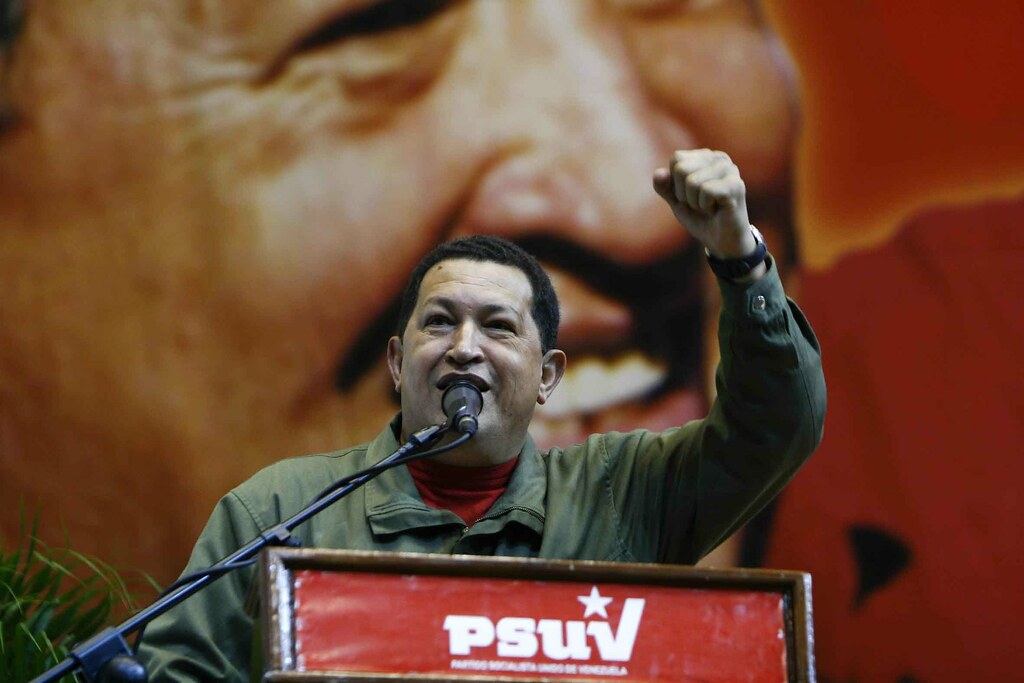Venezuela, once considered one of the most prosperous and promising countries in Latin America, has plummeted into an economic and social crisis that has left its citizens impoverished and desperate. At the heart of this downfall lies the socialist policies championed by former President Hugo Chávez. This article aims to critically examine how Chávez’s socialist politics ultimately contributed to the destruction of Venezuela.
The Rise of Hugo Chávez
Hugo Chávez, a charismatic and influential leader, came to power in 1999 with the promise of bringing social justice and reducing poverty in Venezuela. He implemented an aggressive socialist agenda that aimed to redistribute wealth, nationalize industries, and expand social welfare programs. While these promises initially resonated with the marginalized sections of society, the long-term consequences of such policies proved to be disastrous.
Economic Mismanagement
Chávez’s socialist policies sowed the seeds of economic mismanagement and led to a series of detrimental consequences. The nationalization of key industries, including oil, crippled the private sector, stifled entrepreneurship, and discouraged foreign investment. Venezuela’s heavy reliance on oil exports provided a false sense of security, which ultimately resulted in neglecting other vital sectors of the economy. As global oil prices fluctuated, the Venezuelan economy became vulnerable to external shocks, and its over-reliance on a single commodity thrust it into a severe recession.
Widespread Corruption and Misallocation of Resources
Chávez’s leadership was marred by rampant corruption and the misallocation of resources, further exacerbating Venezuela’s economic woes. Socialist policies often led to the concentration of power in the hands of the government, creating an environment conducive to corruption and mismanagement. Instead of investing in infrastructure, healthcare, and education, Chávez’s government prioritized populist measures to gain political support, neglecting vital sectors that would have ensured long-term sustainability.
Social Polarization and Erosion of Democracy
Under Chávez’s rule, Venezuela experienced a deepening divide among its citizens. Rhetoric emphasizing class struggle and demonization of wealthy elites fostered a sense of social polarization. Chávez consolidated power by stacking the Supreme Court with loyalists, suppressing opposition voices, and amending the constitution to extend his presidency. These actions eroded democratic institutions, stifled dissent, and undermined the rule of law. Such an environment left no room for checks and balances, leading Venezuela down an authoritarian path.
Human Rights Abuses and Media Suppression
Chávez’s regime was marked by widespread human rights abuses and a crackdown on press freedom. Journalists faced intimidation, censorship, and persecution simply for expressing dissenting views. Political opponents were marginalized and persecuted, with allegations of torture and disappearances becoming alarmingly common. The erosion of democratic principles and the suppression of a free press became the hallmarks of Chávez’s tenure, stifling any hope for a pluralistic and inclusive society.
Deteriorating Living Conditions and Humanitarian Crisis
The culmination of economic mismanagement, corruption, social polarization, and erosion of democratic principles has unleashed a humanitarian crisis in Venezuela. Hyperinflation has rendered the currency virtually worthless, leaving citizens struggling to afford basic necessities. Shortages of food, medicine, and essential goods have further exacerbated the suffering of the population. The exodus of millions of Venezuelans seeking better opportunities abroad has created regional instability and strained neighboring countries.
Socialism As Catastrophic Experiment
The socialist policies championed by Hugo Chávez have proven to be a catastrophic experiment on the Venezuelan people. Economic mismanagement, corruption, social polarization, erosion of democratic institutions, and human rights abuses have dismantled the once thriving nation. The destruction caused by these policies will take years, if not decades, to overcome. It is crucial to learn from this experience and recognize the importance of balanced and sustainable policies to ensure the well-being and prosperity of a nation and its citizens.
